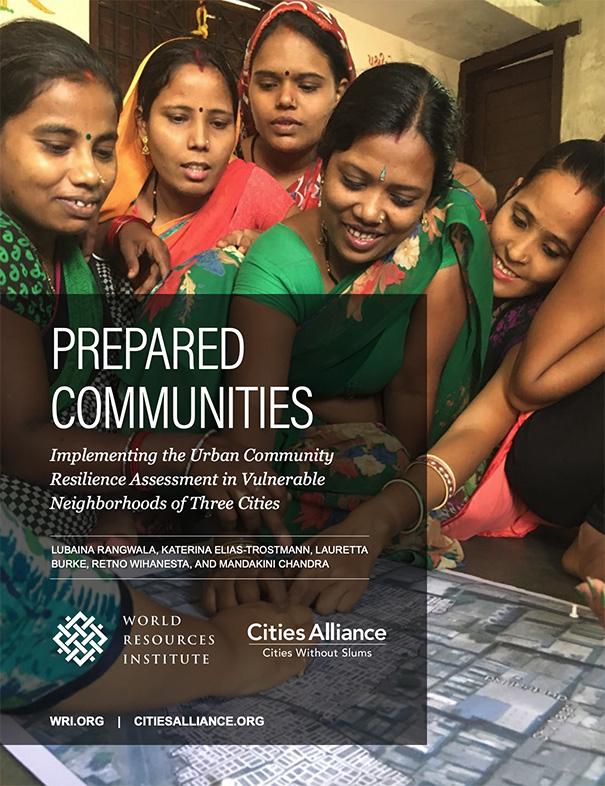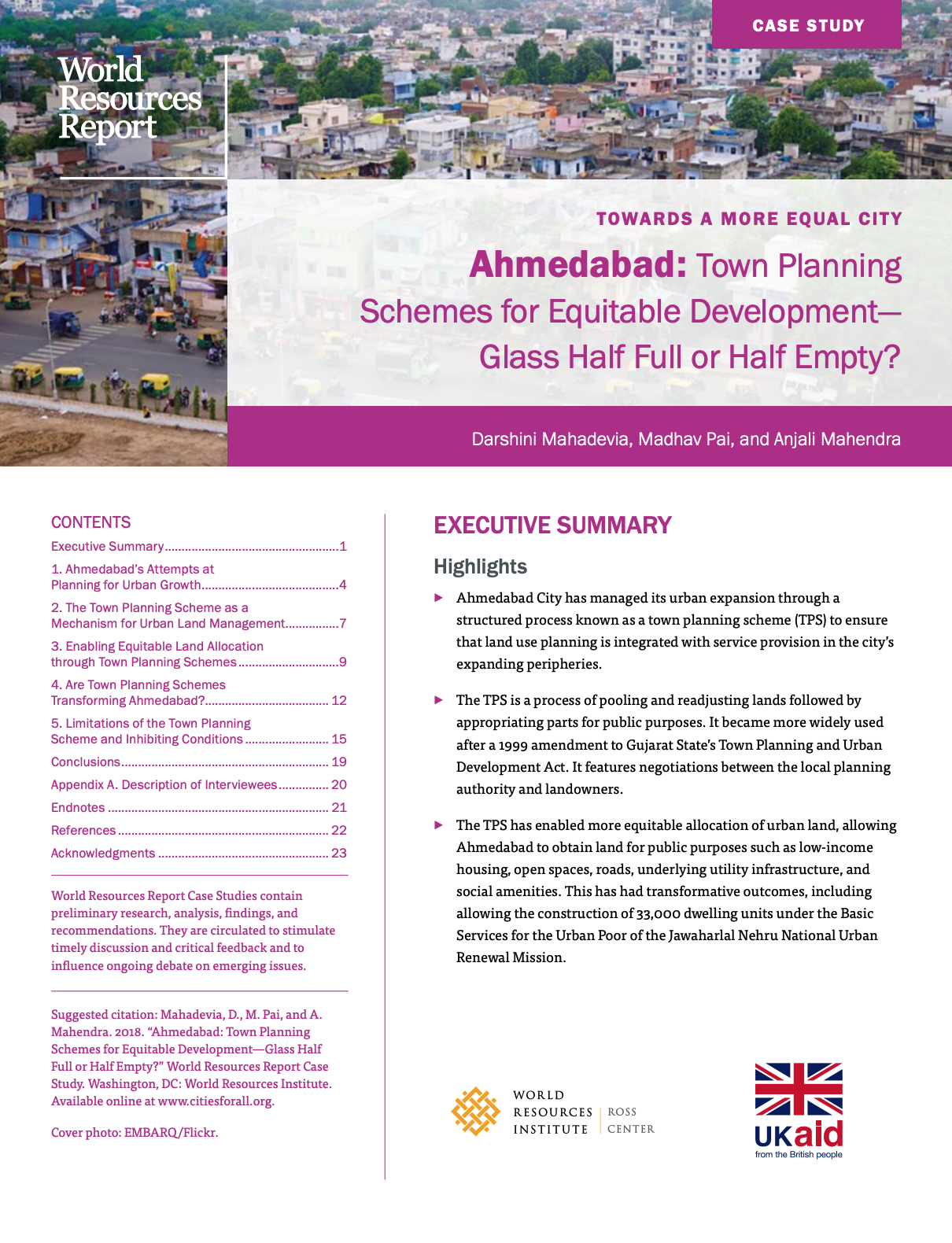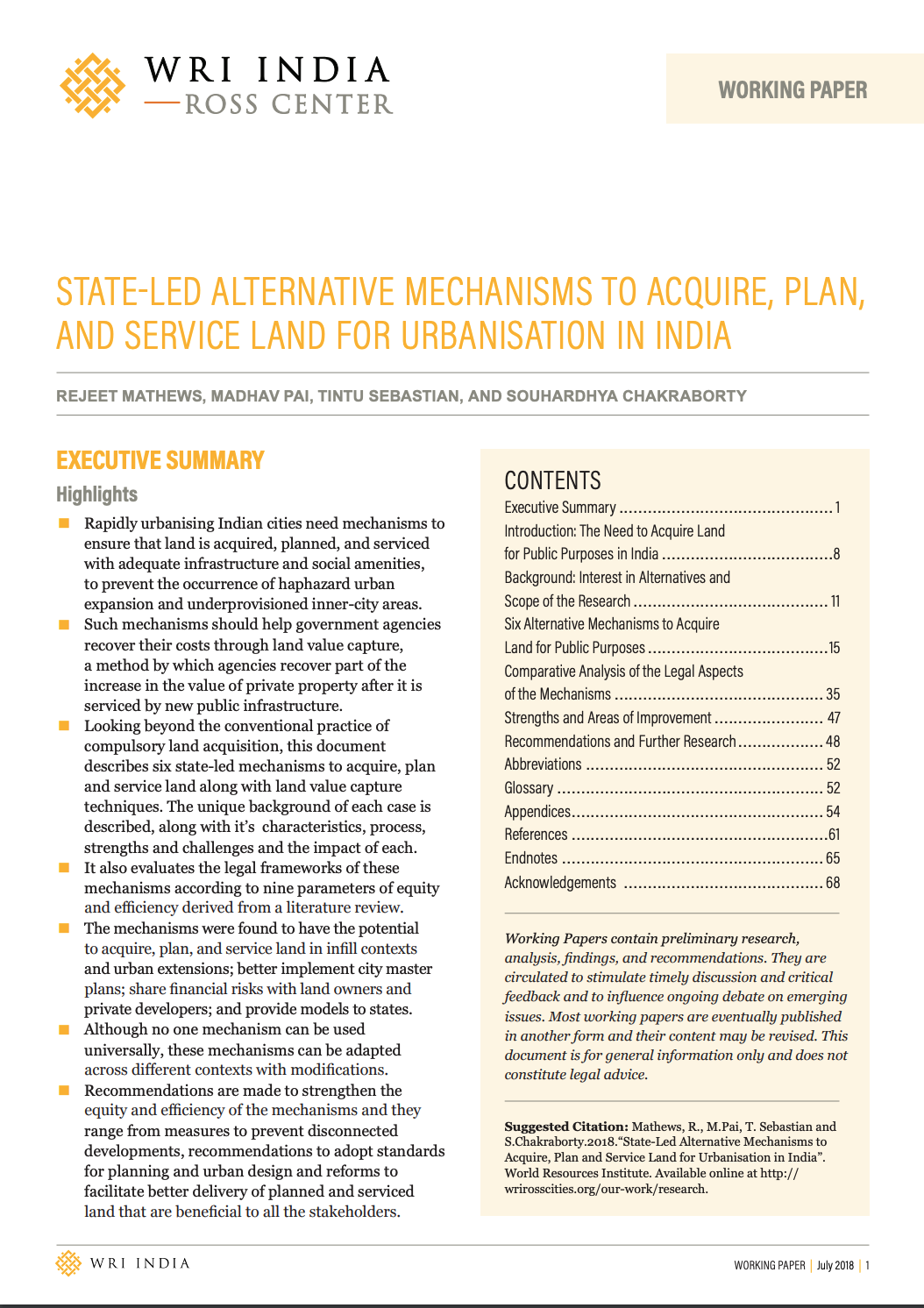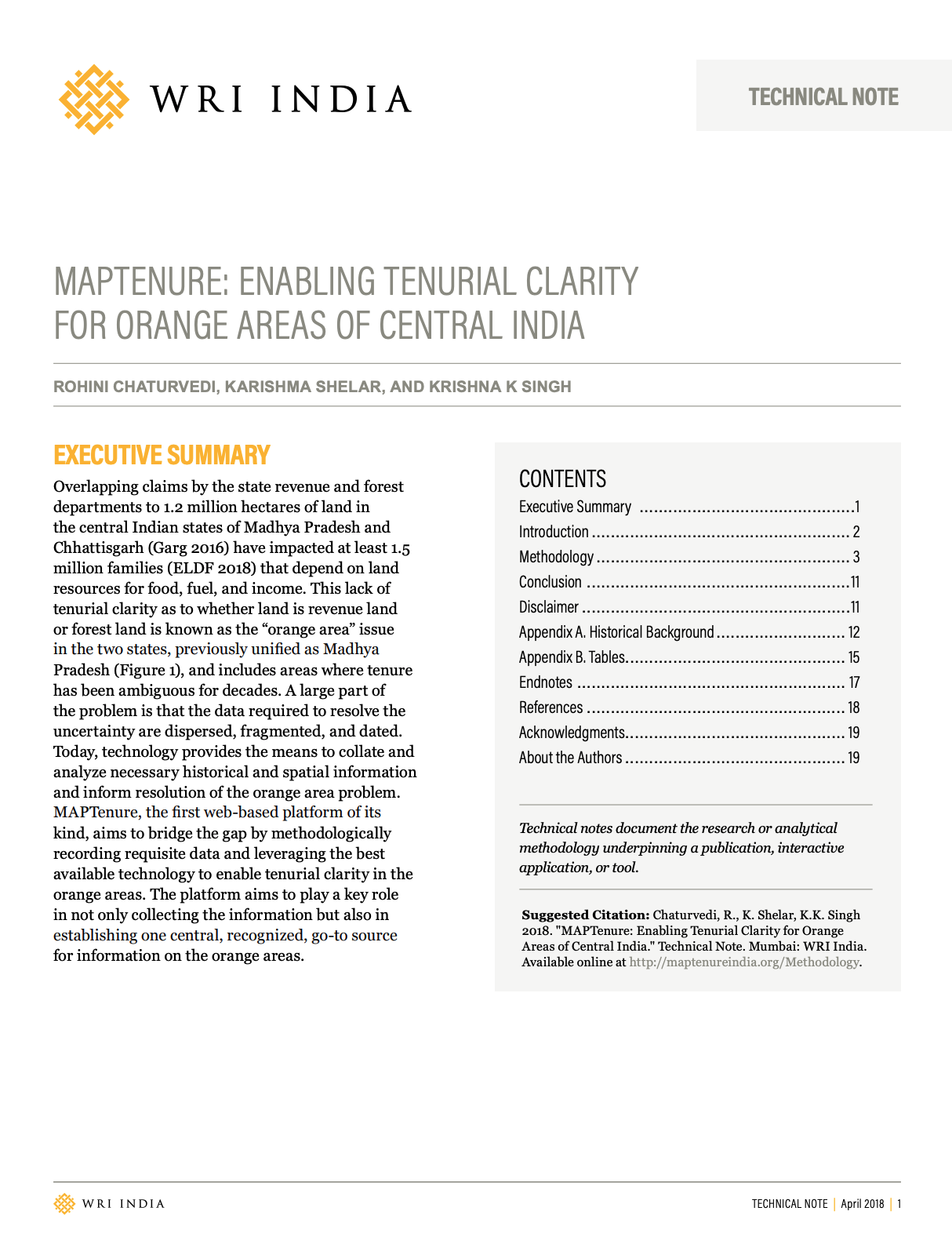Location
WRI India, an independent charity legally registered as the India Resources Trust, provides objective information and practical proposals to foster environmentally sound and socially equitable development. Our work focuses on building sustainable and liveable cities and working towards a low carbon economy. Through research, analysis, and recommendations, WRI India puts ideas into action to build transformative solutions to protect the earth, promote livelihoods, and enhance human well-being.
We are inspired by and associated with World Resources Institute (WRI), a global research organisation with more than 400 experts and other staff around the world. World Resources Institute began in Washington, DC, in 1982 to provide cutting edge analysis to address global environment and development challenges. WRI spans more than 50 countries, with offices in Brazil, China, Europe, India, Indonesia, and the United States. In all of these locations, WRI works with government, business, and civil society to drive ambitious action based on high-quality data and objective analysis.
The India Resources Trust has a license from WRI to use the trademark “WRI India”.
Members:
Resources
Displaying 1 - 5 of 6Prepared Communities
Climate change affects poor and marginalized communities first and hardest. Particularly in cities, a lack of access to basic services, a long history of unsustainable urban development, and political exclusion render the urban poor one of the most vulnerable groups to climate induced natural hazards and disasters. Yet strategies focused on reducing these people’s vulnerability to climate change often overlook crucial differences in their needs and situations.
Prepared Communities
Climate change affects poor and marginalized communities first and hardest. Particularly in cities, a lack of access to basic services, a long history of unsustainable urban development, and political exclusion render the urban poor one of the most vulnerable groups to climate induced natural hazards and disasters. Yet strategies focused on reducing these people’s vulnerability to climate change often overlook crucial differences in their needs and situations.
Ahmedabad: Town Planning Schemes for Equitable Development — Glass Half Full or Half Empty?
This case study in the World Resources Report, “Towards a More Equal City,” examines transformative urban change in Ahmedabad, India, by analyzing the land pooling and readjustment mechanism called Town Planning Scheme (TPS). This paper reviews the evidence on whether the TPS mechanism has enabled transformative change with equitable outcomes in Ahmedabad City—and if so, how.
State-led Alternative Mechanisms to Acquire, Plan, and Service Land For Urbanisation in India
Rapidly urbanizing Indian cities need mechanisms to ensure that land is acquired, planned, and serviced with adequate infrastructure and social amenities, to prevent the occurrence of haphazard urban expansion and under-provisioned inner-city areas.
Such mechanisms should help government agencies recover their costs through land value capture, a method by which agencies recover part of the increase in the value of private property after it is serviced by new public infrastructure.
MAPTenure: Enabling Tenurial Clarity for Orange Areas of Central India
More than half the villages of Madhya Pradesh and Chhattisgarh are affected by a peculiar issue of tenurial ambiguity called “orange areas.” This issue impacts nearly 1.2 million hectares and 1.5 million, largely poor, landless and tribal families, that depend on these lands for food, fuel, fodder and other sources of income. This lack of tenurial clarity also impacts forest protection outcomes in the state and constrains the achievement of biodiversity, water and climate targets.




